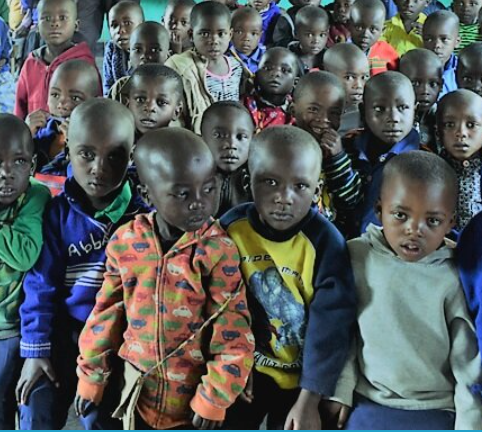
An App for Health Screening in Rwanda
May 3, 2021
By Rachel Andreas, Jeremy Fryer-Biggs, and Rabia Khalid
Students at Boston University School of Global Health teamed up with Rwanda NGO Move Up Global to develop a mobile app to help diagnose young people with common worm infections.
Soil-born worms (known as soil-transmitted helminths) are a common health problem affecting 1.5 billion people in developing countries. Three species, Ascaris, Hookworm, and Whipworm are responsible for the bulk of infections in rural Rwanda. The worms gain entry into a person either orally via improperly washed food or through the skin when a person walks barefoot through an infected area. Once inside, the worms colonize the gut and rapidly multiply causing everything from respiratory symptoms to, in extreme cases, weight loss and internal bleeding. While rarely fatal, these infections can have debilitating effects on their hosts and this can dramatically impact a young person’s ability to attend and thrive at school.
Move Up Global (MUG) is a Rwandan NGO with a multipronged mission to promote education, entrepreneurship, and better health in Rwanda. Having witnessed the impact which soil-transmitted helminths can have, the organization sought an easier and more cost-effective method for identifying and treating potential cases. MUG leadership approached James Wolff who teaches an annual class at Boston University Graduate School of Public Health about potentially leveraging mobile health technology to address this problem.
The assembled team of students was inspired by the COVID-19 screening tools used at Boston University and consulted with experts in epidemiology and infectious tropical diseases as well as with MUGs Rwandan based physicians and technologists to build an app that allows teachers and community healthcare workers in Rwanda to assess a child’s condition and, if need be, administer deworming medications or refer them to a local clinic. This screening tool works by prompting the user to ask a student suspected of worm infection a series of questions about their symptoms and activities. The responses then cue up additional questions dynamically. Each answer is weighted and scored and the overall values then prompt the system to make a recommendation about the best course of action for that student. The student is also flagged for future follow-up. While far from perfect, it is hoped that this app will give teachers a valuable additional tool in the fight against nematode worms.
Move Up Global is planning on testing out the app with 1400 students attending 2 schools in rural northwestern Rwanda in the upcoming months. The Boston University app development team is appreciative of the opportunity to deploy the skills they have been learning in a real-world context with the potential to benefit young Rwandans and very thankful for the support and patience of Manzi, Dr. Joseph, and James from Move Up Global as well as Asha, Justin, Jon and Wolffy from the GH806 teaching team.